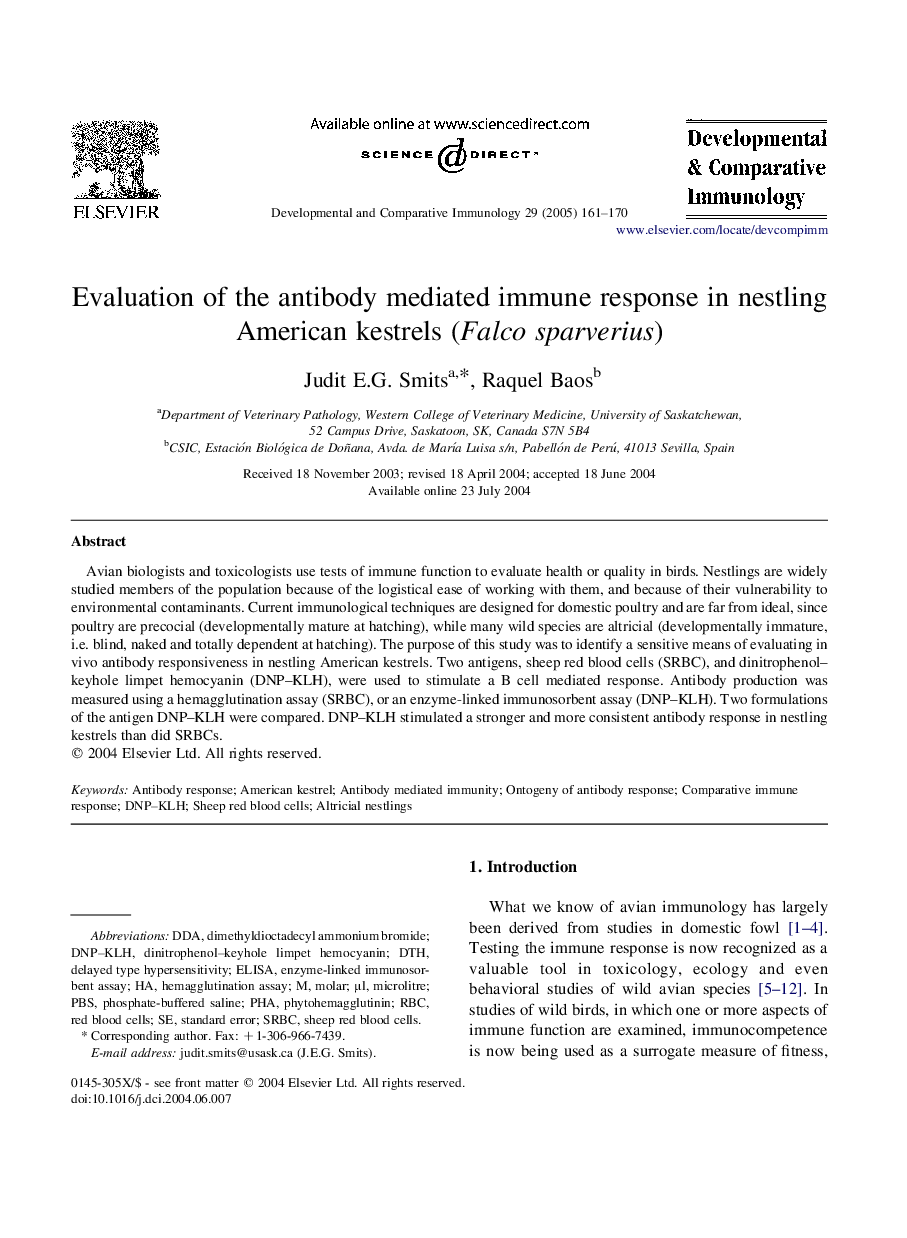| Article ID | Journal | Published Year | Pages | File Type |
|---|---|---|---|---|
| 8978269 | Developmental & Comparative Immunology | 2005 | 10 Pages |
Abstract
Avian biologists and toxicologists use tests of immune function to evaluate health or quality in birds. Nestlings are widely studied members of the population because of the logistical ease of working with them, and because of their vulnerability to environmental contaminants. Current immunological techniques are designed for domestic poultry and are far from ideal, since poultry are precocial (developmentally mature at hatching), while many wild species are altricial (developmentally immature, i.e. blind, naked and totally dependent at hatching). The purpose of this study was to identify a sensitive means of evaluating in vivo antibody responsiveness in nestling American kestrels. Two antigens, sheep red blood cells (SRBC), and dinitrophenol-keyhole limpet hemocyanin (DNP-KLH), were used to stimulate a B cell mediated response. Antibody production was measured using a hemagglutination assay (SRBC), or an enzyme-linked immunosorbent assay (DNP-KLH). Two formulations of the antigen DNP-KLH were compared. DNP-KLH stimulated a stronger and more consistent antibody response in nestling kestrels than did SRBCs.
Keywords
Related Topics
Life Sciences
Biochemistry, Genetics and Molecular Biology
Developmental Biology
Authors
Judit E.G. Smits, Raquel Baos,
